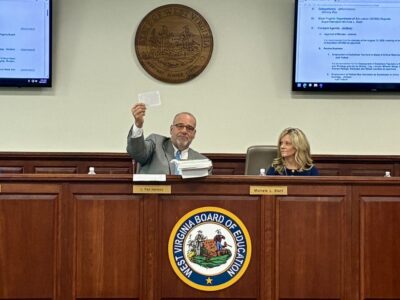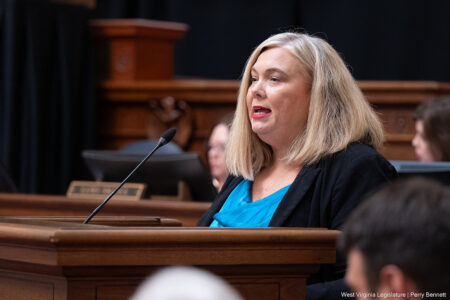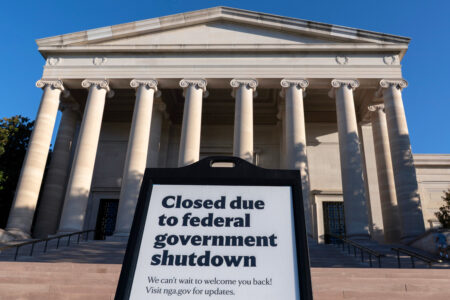West Virginia Board of Education Takes Battle Over Rulemaking to State Supreme Court

CHARLESTON — The West Virginia Board of Education is asking the state’s highest court whether lawmakers have any legal authority to approve or reject rules approved by the state board.
The state Board of Education filed a lawsuit Friday seeking to compel the Secretary of State’s Office to publish the state board’s proposed rules in the State Register and for the West Virginia Supreme Court of Appeals to declare House Bill 2755 unconstitutional.
In its filing, attorneys for the state board point out this will be the second time in nearly 40 years that the justices will have to weigh in on this issue again.
“What is old is new again,” wrote Bailey and Glasser attorney Christopher Smith. “In 1988, the Legislature tried to usurp the Board’s Constitutional rulemaking authority and passed a law requiring the Board to submit its rules and regulations to the Legislature for approval prior to enactment. This Court rejected the Legislature’s power grab…
“The Legislature now attempts the very same Constitutional coup this Court thwarted nearly 40 years ago,” Smith continued. “That law is as unconstitutional today as it was 40 years ago, and this Court should declare this iteration unconstitutional again.”
House Bill 2755, which went into effect in July, requires that all legislative rules enacted by the board must first be authorized by the Legislative Oversight Commission on Education Accountability. The proposed rules would then be submitted to the full Legislature for review, which could result in approval, amendment or rejection.
HB 2755 passed the House of Delegates on March 20 in an 84-12 vote. The state Senate approved the bill on April 10 — two days before the end of the 60-day session — in a 19-15 vote. However, Gov. Patrick Morrisey did not sign or veto the bill, which allowed it to become law without his signature.
In May, the state board voted to begin pursuing litigation to contest the constitutionality of HB 2755. In July, the board announced that it was planning to sue Secretary of State Kris Warner after the board approved Policy 4334, West Virginia Design and Equipment Requirements for School Transportation Vehicles, during a special board meeting.
The rule — which set specific design and equipment standards for school buses and other modes of transportation used by schools — was first approved by the state board on May 14 and put out for a 30-day public comment period.
Traditionally, the next step for the board is to file the final rule with the Secretary of State’s Office to be included in the State Register, a weekly online publication which provides information on approved and pending legislative rules. State code also requires the final rule to be submitted to the Legislative Oversight Commission on Education Accountability. But until the passage of HB 2755, rules approved by the state board could only be reviewed by lawmakers.
However, the Secretary of State’s Office rejected the submitted rule for not being in compliance with HB 2755, setting up this new legal challenge submitted by the state board directly to the Supreme Court. The Secretary of State’s Office has previously said that its role in the rule-making process is ministerial only but has to follow the new law until the courts decide on its constitutionality.
Supporters of HB 2755 cite Article 12 of the West Virginia Constitution, which states that “the Legislature shall provide, by general law, for a thorough and efficient system of free schools,” and placing the supervision of the school system with the state board “…which shall perform such duties as may be prescribed by law.”
Yet, a 1988 decision by the West Virginia Supreme Court of Appeals in West Virginia Board of Education v. Hechler determined that a 1983 law requiring legislative approval of state board rules was unconstitutional. In both 1989 and 2022, the Legislature adopted joint resolutions to place on general election ballots constitutional amendments to give education rule-making approval to the Legislature, but voters rejected both. The 2022 proposed constitutional amendment failed in a 58%-42% vote.
“Twice, in 1989 and in 2022, the Legislature asked the voters to amend the Constitution to give the Legislature the control contemplated by House Bill 2755. Twice, the voters said, ‘No,’ and voted down the proposed Constitutional amendments,” Smith wrote. “But the Legislature disregarded voters’ choice — just as it disregarded this Court’s precedent — and passed House Bill 2755 regardless. That disregard should not stand.”





